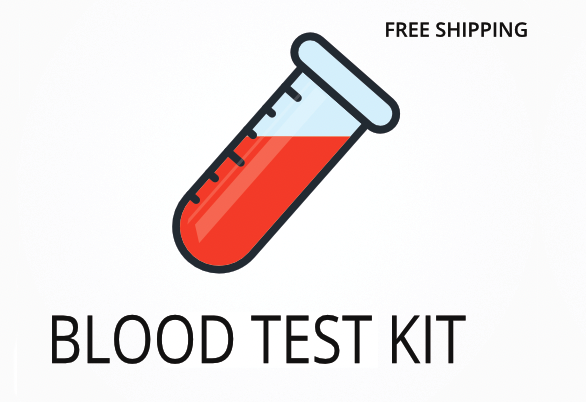Ordering the Babesia FISH Test
Babesia FISH is a specialized blood test that uses fluorescent in-situ hybridization to detect all species of Babesia, a protozoan parasite transmitted by ticks. This test is often ordered to help identify active Babesia infection, especially in people with symptoms that overlap with other tick-borne illnesses. Interestingly, Babesia FISH can detect the parasite even when antibody levels are too low to be picked up by standard serology tests, making it useful for early or ongoing infections.
Ordering Babesia FISH provides several specific benefits:
- Detects active Babesia infection directly in red blood cells, not just past exposure.
- Helps distinguish Babesia from other tick-borne infections like Lyme disease.
- Supports targeted treatment decisions by confirming the presence of the parasite.
- Useful for monitoring ongoing symptoms when other tests are inconclusive.
- Can identify coinfections in people with persistent or unexplained symptoms.
Who Should Consider Babesia Detection and Tick-Borne Illness Testing
People who have experienced unexplained fevers, chills, fatigue, or muscle aches after spending time in areas where ticks are common may benefit from this test. For example, someone who develops night sweats, joint pain, and jaundice weeks after a hiking trip in the Northeast might need to check for Babesia, especially if Lyme disease tests are negative.
Ordering this test may also be helpful in these situations:
- Ongoing fatigue and weakness after a known tick bite.
- Unexplained hemolytic anemia with no clear cause.
- Symptoms of Lyme disease that do not improve with treatment.
- Sudden onset of fever, headache, and muscle pain during tick season.
- Unexpected spleen enlargement found during a routine checkup, which can sometimes be linked to Babesia infection.
Testing for Babesia can help confirm the cause of symptoms, guide treatment, and prevent complications like worsening anemia or persistent infection. Delaying this test may allow the parasite to continue affecting red blood cells, which can make symptoms last longer or become more severe.
How to Prepare for Babesia FISH and Related Tick-Borne Disease Tests
Fasting is not required for the Babesia FISH test, so you can eat and drink as usual before your blood draw. Always follow any specific instructions or guidance your doctor or healthcare provider gives you to ensure the process goes smoothly and your sample is collected correctly.
Labs Included When Ordering Your Babesia FISH Test
| Test Name | Reference Range | Significance | Low and High Levels of Babesia FISH |
|---|---|---|---|
| Babesia FISH (Fluorescent In-Situ Hybridization) | Negative | This test detects Babesia parasites directly in red blood cells using a fluorescent probe. It identifies active infection, even when antibody tests are negative. | High levels mean Babesia parasites are present in the blood, indicating an active infection.
Low levels mean no Babesia parasites were detected, suggesting no current infection. |
Reference ranges may change slightly as laboratories update their methods and standards over time.
Babesia FISH FAQ
Is there Babesia FISH testing near me?
Babesia FISH is available as a test kit that you can use with a local blood draw site—check the draw location link at the top of the page. Since Babesia can cause symptoms like fatigue and anemia, having a nearby collection site makes it easier to get tested quickly and start addressing your symptoms.
How do I interpret the test results?
While your treating physician should review your results, you can also schedule a one-on-one test results review with our clinical team for a detailed explanation and next steps.
What is the cost of the test?
The price listed for Babesia FISH includes standard shipping to your address and return shipping to the lab, though local draw fees may apply. Ordering this test can help you identify a Babesia infection sooner, which may help you recover faster by starting the right treatment.
How often should I retest?
Retesting is usually recommended 2-4 weeks after treatment or if symptoms return, to confirm the infection has cleared. Repeating the test can help track your progress and ensure Babesia is no longer present in your blood.
How accurate is the test?
Babesia FISH uses fluorescent in-situ hybridization to directly detect Babesia DNA in red blood cells, with a specificity of 99% and sensitivity of 95%. TrueHealthLabs.com partners with CLIA-certified and CAP-certified laboratories to uphold rigorous testing standards for dependable results.
Medical Review Board
Reviewed by Jeff Donohue M.D. from Body Logic and Brady Hurst DC, CCCN. Written by True Health Lab’s team of editorial health contributors.
Disclaimer: This information is for educational purposes only and not intended as medical advice. Consult your healthcare provider for personalized guidance.
Why Customers Trust True Health Labs – What People are saying
Also rated 4.6 out of 5 based on 3452 ShopperApproved reviews- See all TrueHealthLabs.com reviews.









